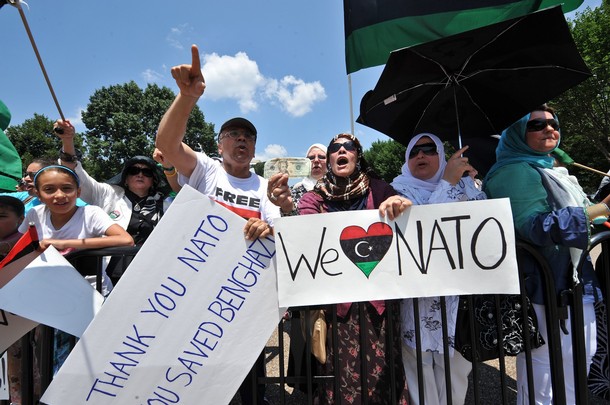
From Tom Donilon, the Washington Post: President Obama has made strengthening our security alliances in Europe and Asia a cornerstone of America’s engagement with the world. These alliances provide unique benefits to U.S. security: shared threat assessments, reliable habits of cooperation, the ability to take military action quickly and seamlessly, real burden-sharing for the American taxpayer, and democratic values that we hold in common. They reflect the persistent work of presidents of both parties since the end of World War II. No other nation possesses anything like the U.S. alliance system.
In Libya, the investment the United States has made in revitalizing NATO has paid off in multiple ways:
First, NATO acted with dispatch to achieve a clearly defined mission to protect civilians. This was the fastest formation of a NATO operation in history. . . .
Second, the speed and effectiveness of the operation would not have been possible if we had had to rely on an ad hoc coalition of the willing. At the outset, NATO members and Arab partners explicitly requested that NATO take over command and control to ensure full coordination among the 18 countries involved. . . .
Third, the operation demonstrated the value of maintaining highly capable militaries that plan, train and equip together. NATO planes flew more than 26,000 sorties and nearly 10,000 strike sorties. . . .
Fourth, this operation shows that sharing the burden is more than a slogan — it means sharing the costs. Our total contribution to the nearly eight months of operations in Libya will be approximately $1.2 billion — a fraction of the overall international contribution to Libya — and less than a week’s worth of the cost of operations in Afghanistan or Iraq. . . .
As we take stock of NATO’s strengths, we will also focus on how our alliance can be more effective in the future. We know that allies need more advanced intelligence, surveillance and reconnaissance capabilities. They face shortages in helicopters and transport aircraft. They need to make greater investments in the precision munitions and unmanned systems that are critical on today’s battlefields and will be even more important in the future. As President Obama prepares to host the next NATO summit in Chicago in May, he is asking the alliance to ensure that it has cutting-edge capabilities. . . .
From the Atlantic to the Pacific, America’s strong alliances and partnerships are an enduring source of our national strength and global leadership — helping underwrite our security, enabling our prosperity, and promoting our values.
The writer is national security adviser to President Obama. (photo: Getty)
Image: getty%207%2031%2011%20Pro%20NATO%20demonstrators.jpg
